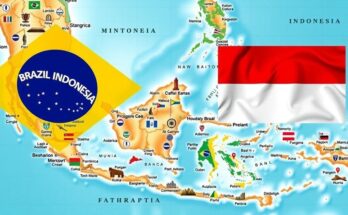This article examines the repercussions of the global lithium demand on Nigeria, focusing on the exploitative labor practices involving child miners. It highlights the dominance of Chinese companies in the region and the associated illegal and environmentally harmful mining activities.
The increasing demand for lithium, integral to the production of batteries for electric vehicles and energy storage systems, has opened up extensive mining operations in Nigeria. However, this development comes at a significant humane cost—the widespread exploitation of child labor. These children are forced into arduous labor to contribute to an industry primarily benefiting Chinese enterprises, which largely dominate Nigeria’s poorly regulated mining sector. Allegations of illegal mining practices and severe labor abuses have emerged against these operations, raising critical concerns about the ethical implications behind the extraction of this valuable resource. The role of Chinese companies in the supply chains for renewable energy has come under intense scrutiny, with persistent claims of detrimental environmental practices and disregard for local communities.”
Lithium is increasingly becoming known as “white gold” due to its critical role in the transition to renewable energy and electric vehicles. Nations across the globe are ramping up their lithium production to meet the soaring demand. In Nigeria, the burgeoning mining industry has begun attracting foreign investment, particularly from Chinese firms, known for their controversial practices amidst the lax regulatory environment. This burgeoning sector, while economically significant, also brings forth serious issues of child exploitation and environmental degradation.
In conclusion, the mining of lithium in Nigeria, while essential for meeting global energy demands, reveals troubling ethical challenges. The exploitation of child labor not only highlights the human cost of this industry but also prompts a reevaluation of the responsibility of global supply chains. Addressing these injustices necessitates concerted efforts from both local governments and international stakeholders to ensure ethical practices within the mining sector.
Original Source: www.firstpost.com




